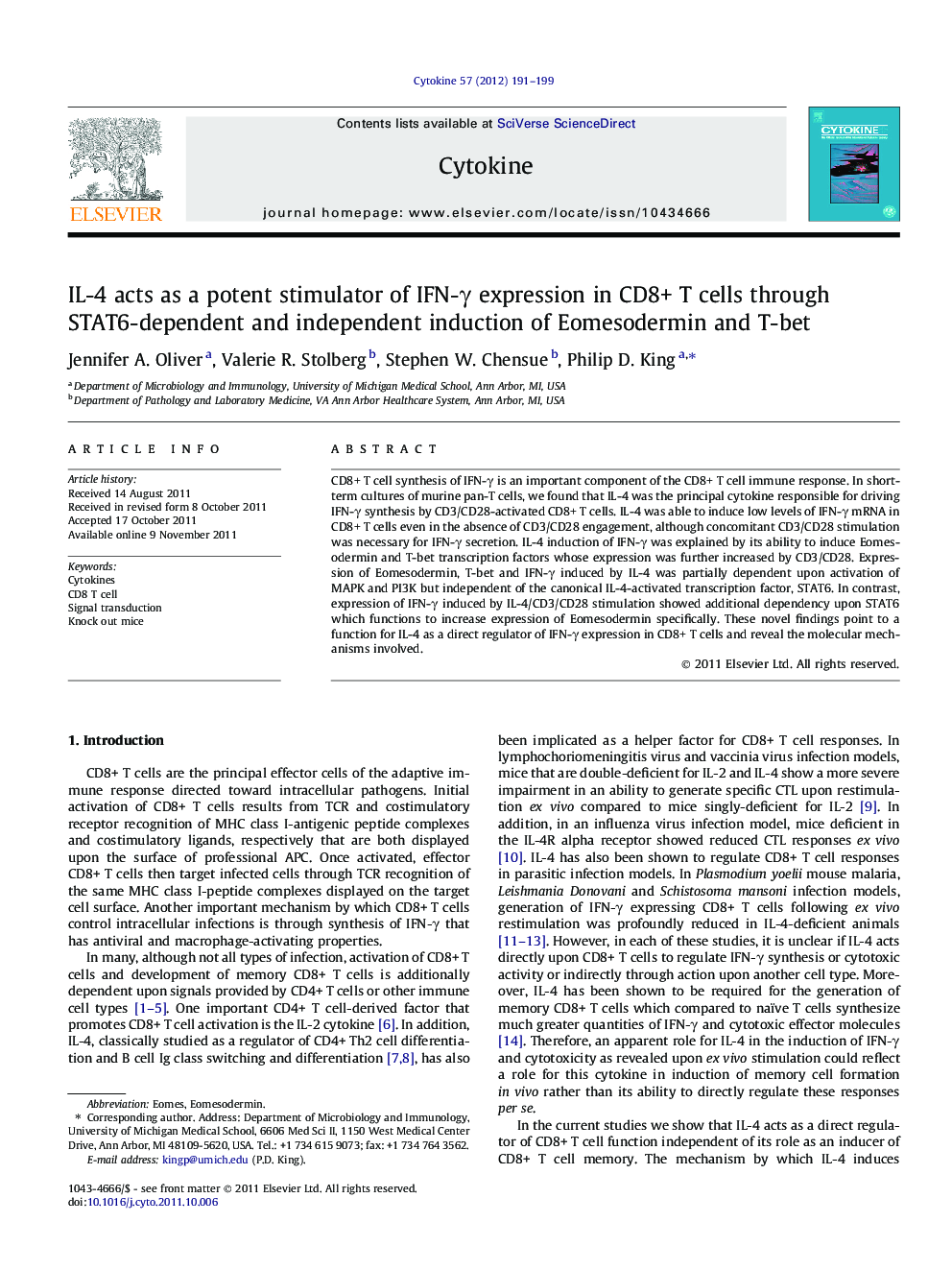| Article ID | Journal | Published Year | Pages | File Type |
|---|---|---|---|---|
| 5898278 | Cytokine | 2012 | 9 Pages |
CD8+ T cell synthesis of IFN-γ is an important component of the CD8+ T cell immune response. In short-term cultures of murine pan-T cells, we found that IL-4 was the principal cytokine responsible for driving IFN-γ synthesis by CD3/CD28-activated CD8+ T cells. IL-4 was able to induce low levels of IFN-γ mRNA in CD8+ T cells even in the absence of CD3/CD28 engagement, although concomitant CD3/CD28 stimulation was necessary for IFN-γ secretion. IL-4 induction of IFN-γ was explained by its ability to induce Eomesodermin and T-bet transcription factors whose expression was further increased by CD3/CD28. Expression of Eomesodermin, T-bet and IFN-γ induced by IL-4 was partially dependent upon activation of MAPK and PI3K but independent of the canonical IL-4-activated transcription factor, STAT6. In contrast, expression of IFN-γ induced by IL-4/CD3/CD28 stimulation showed additional dependency upon STAT6 which functions to increase expression of Eomesodermin specifically. These novel findings point to a function for IL-4 as a direct regulator of IFN-γ expression in CD8+ T cells and reveal the molecular mechanisms involved.
⺠IL-4 induces CD8+ T cell IFN-γ expression via induction of T-bet and Eomes. ⺠IL-4 and TCR costimulation results in increased expression of T-bet, Eomes and IFN-γ. ⺠TCR costimulation is required for CD8+ T cell secretion of IFN-γ induced by IL-4. ⺠IL-4 induced CD8+ T cell expression of IFN-γ is dependent upon MAPK and PI3K. ⺠IL-4 plus TCR induction of IFN-γ is also dependent upon STAT6 that augments Eomes.
